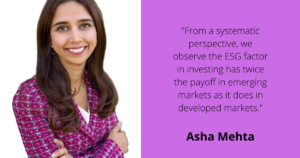
The world’s workforce is ill-equipped to forge ahead with the transition to a sustainable, low-carbon economy, despite booming global demand for green professionals, new research from LinkedIn has found.
The professional networking platform’s 2023 Global Green Skills Report, published this week, revealed that while green job postings are up by 15.2 percent year-on-year, demand for talent is outstripping supply.
Globally, green job postings grew nearly twice as fast as the share of green talent between 2022 and 2023, with “sustainability analyst,” “sustainability specialist” and “sustainability manager” among the 10 fastest-growing roles on LinkedIn between 2018 and 2022.
Moreover, construction, utilities, oil and gas, and mining were found to be among Europe’s top industries for green roles, with LinkedIn also seeing a spike in in tech and finance professionals gaining green skills.
However, just one in eight U.K. workers were found to be equipped with skills such as climate action planning, corporate sustainability and sustainable procurement, compared to one in seven workers in France and one in six in Germany. The shortfall in green skills was further underscored by the fact a third of advertised jobs in the U.K. now include some form of green skills.
The findings chime with warnings from experts in BusinessGreen Intelligence’s recent trend report covering the “war” for green talent, which revealed widespread concerns over the skills shortages afflicting various green industries. Industry insiders calls for renewed cross-sector collaboration and more detailed internal and external training schemes, backed by increased government support to help tackle worsening green skills shortages.
LinkedIn’s report similarly called for targeted action from policymakers and businesses to step up efforts to help more workers break into green roles.
Sue Duke, head of global public policy at LinkedIn, called for the “transformation” of the global labor market.
“It is not enough to simply create more green roles and wait for people to fill them,” she said. “Without the right skills, these new jobs can be hard for people to break into. We need to make it as easy as possible for people to move into green jobs, and that will require combined action from policymakers, businesses and educational organizations.
“Targeted and tailored reskilling programms and on-the-job training are critical to building a global workforce with the skills to tackle the climate threat.”
Richard Eardley, strategic projects director at recruitment firm Hays, suggested that to reach net zero targets, organizations must look beyond existing experience and instead focus on whether candidates have the capacity to acquire green skills.
“Sustainability will soon impact most roles, so organizations also need to actively upskill their current workforce to develop their employee’s knowledge and understanding of sustainability,” he said. “Employers should be training their employees on sustainability issues and skills, while also hiring candidates that have the capacity to learn and evolve, to ensure their organization has the right resources and capabilities in the future.”
The release of LinkedIn’s report coincides with King’s Business School launching a new executive MBA that aims to combine leadership skills with an awareness of wider social and environmental challenges.
Starting in September 2023, the EMBA will take a cross-departmental approach to themes such as finance, strategy and CSR, and examine how these areas interact across an organization and impact financial performance.
Professor Jens Hagendorff, the course’s director, described a “typical” business education as no longer enough for professionals looking to break into C-suite roles.
“Increasingly, leaders need to consider all kinds of input; from cutting edge technological developments to the needs of the communities their business operates in,” he said. “Working with top academics and other future leaders, graduates of our program will think through issues, test out ideas, and learn how they can secure their organization’s success in the years to come and make a positive contribution to the world around them.”
- SEO Powered Content & PR Distribution. Get Amplified Today.
- EVM Finance. Unified Interface for Decentralized Finance. Access Here.
- Quantum Media Group. IR/PR Amplified. Access Here.
- PlatoAiStream. Web3 Data Intelligence. Knowledge Amplified. Access Here.
- Source: https://www.greenbiz.com/article/linkedin-green-skills-fail-keep-surging-global-demand
- :has
- :is
- :not
- $UP
- 10
- 15%
- 2018
- 2022
- 2023
- a
- academics
- acquire
- across
- Action
- actively
- ahead
- aims
- All
- also
- among
- an
- analyst
- and
- approach
- ARE
- areas
- around
- AS
- At
- awareness
- backed
- BE
- between
- Beyond
- Break
- Building
- business
- Business School
- businesses
- by
- C-suite
- called
- Calls
- CAN
- candidates
- capabilities
- Capacity
- challenges
- Chime
- Climate
- climate action
- collaboration
- combine
- combined
- come
- Communities
- compared
- Concerns
- Consider
- construction
- contribution
- Corporate
- course
- covering
- create
- critical
- Current
- cutting
- Demand
- described
- Despite
- detailed
- develop
- developments
- Director
- Duke
- easy
- economy
- Edge
- Education
- educational
- efforts
- Employee
- employees
- employers
- enough
- ensure
- environmental
- equipped
- Ether (ETH)
- Europe
- evolve
- examine
- executive
- existing
- experience
- experts
- external
- fact
- FAIL
- FAST
- fill
- finance
- financial
- financial performance
- findings
- Firm
- Focus
- For
- forge
- form
- found
- France
- from
- further
- future
- future leaders
- gaining
- GAS
- Germany
- GitHub
- Global
- Government
- government support
- Green
- Hard
- Have
- he
- head
- help
- Hiring
- How
- HTTPS
- ideas
- Impact
- in
- include
- increased
- increasingly
- industries
- industry
- input
- instead
- Intelligence
- interact
- internal
- into
- issues
- IT
- Job
- Jobs
- jpg
- just
- just one
- Keep
- King
- knowledge
- labor
- labor market
- launching
- leaders
- Leadership
- LEARN
- longer
- Look
- looking
- low-carbon
- make
- manager
- Market
- MBA
- Mining
- more
- most
- move
- must
- nearly
- Need
- needs
- net
- networking
- New
- no
- now
- of
- Oil
- Oil and Gas
- on
- ONE
- operates
- organization
- organizations
- Other
- our
- out
- over
- People
- percent
- performance
- planning
- platform
- plato
- Plato Data Intelligence
- PlatoData
- policy
- policymakers
- positive
- possible
- professional
- professionals
- Program
- projects
- public
- published
- reach
- recruitment
- release
- renewed
- report
- require
- research
- reskilling
- Resources
- Revealed
- right
- roles
- s
- Said
- schemes
- School
- secure
- seeing
- September
- seven
- Share
- she
- shortages
- shortfall
- should
- Similarly
- simply
- SIX
- skills
- So
- Social
- some
- Soon
- specialist
- spike
- Step
- Strategic
- Strategy
- success
- such
- supply
- support
- surging
- Sustainability
- sustainable
- tackle
- tailored
- Take
- Talent
- targeted
- targets
- tech
- technological
- test
- that
- The
- The Future
- the world
- their
- Them
- These
- they
- think
- Third
- this
- this week
- threat
- Through
- to
- top
- Training
- Transformation
- transition
- Trend
- Twice
- typical
- U.K.
- understanding
- utilities
- various
- wait
- war
- was
- we
- week
- were
- whether
- which
- while
- wider
- widespread
- will
- with
- without
- workers
- Workforce
- working
- world
- years
- zephyrnet
- zero










